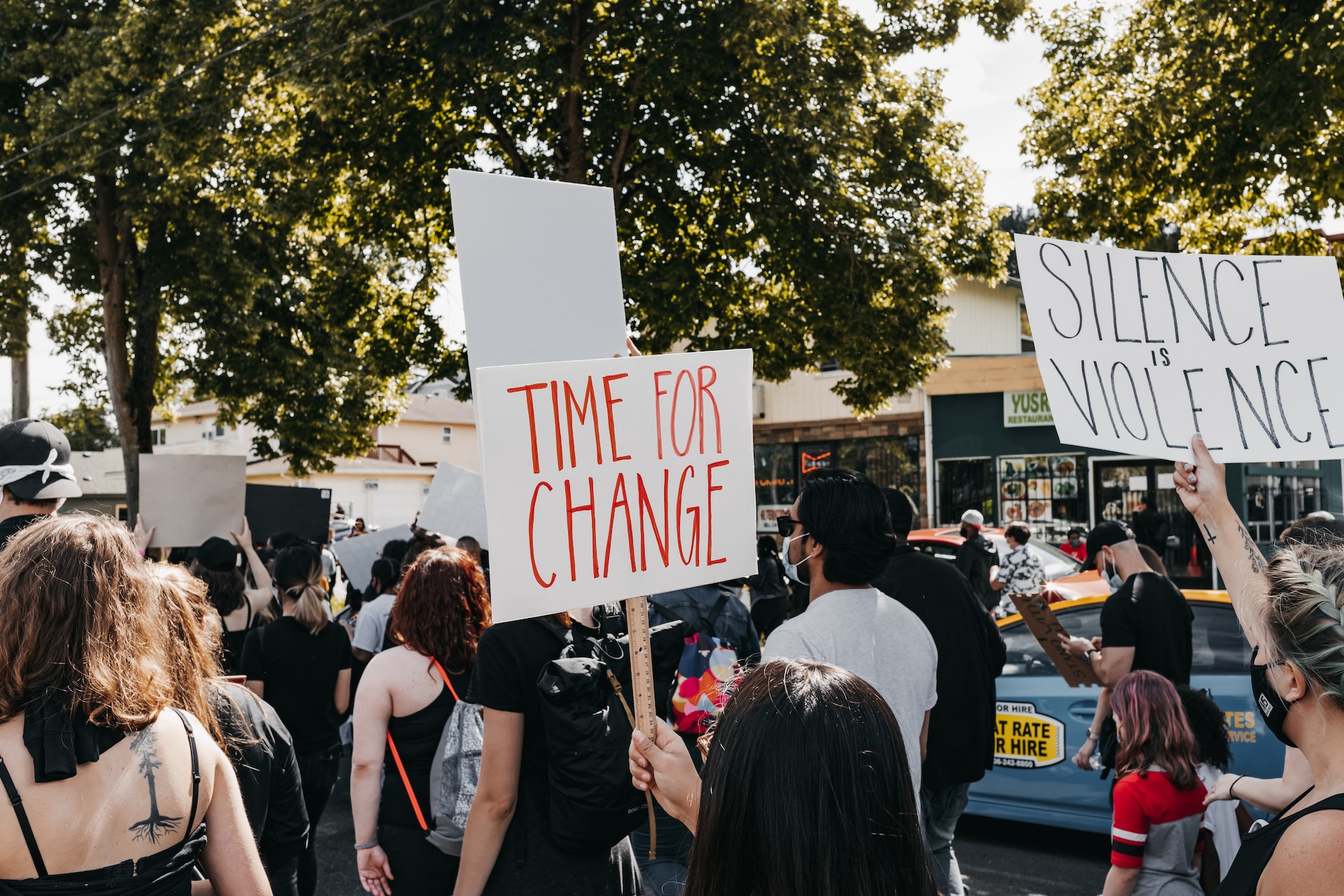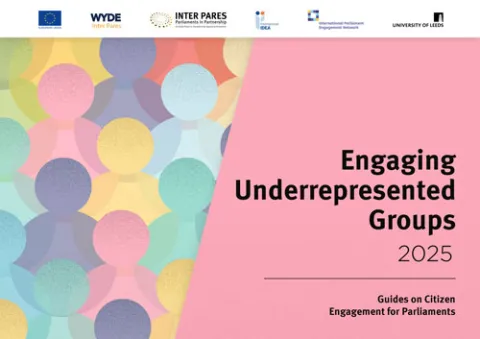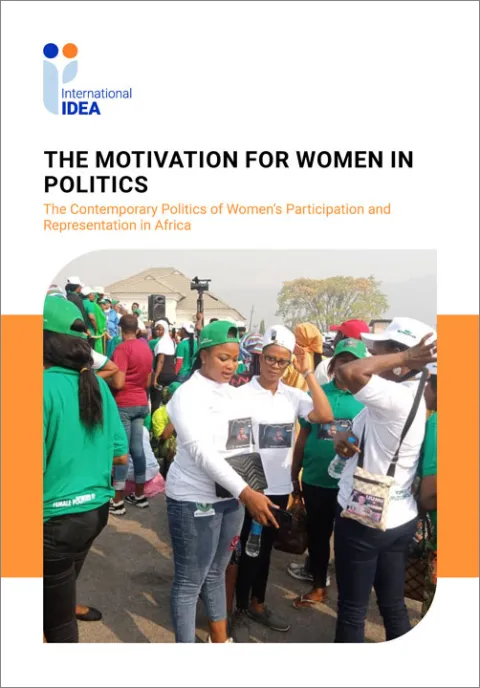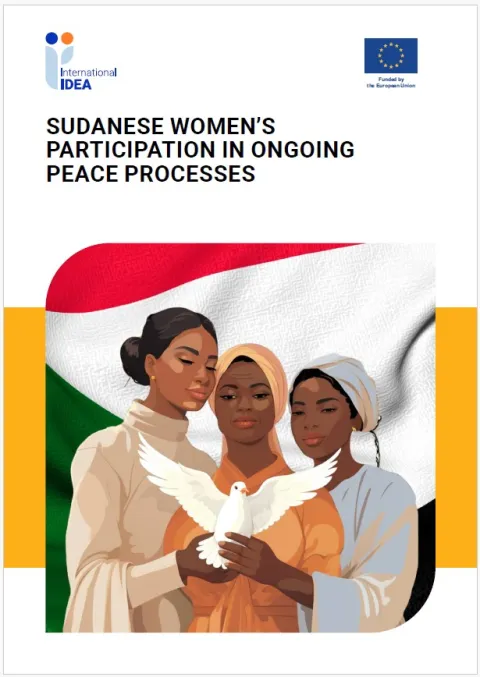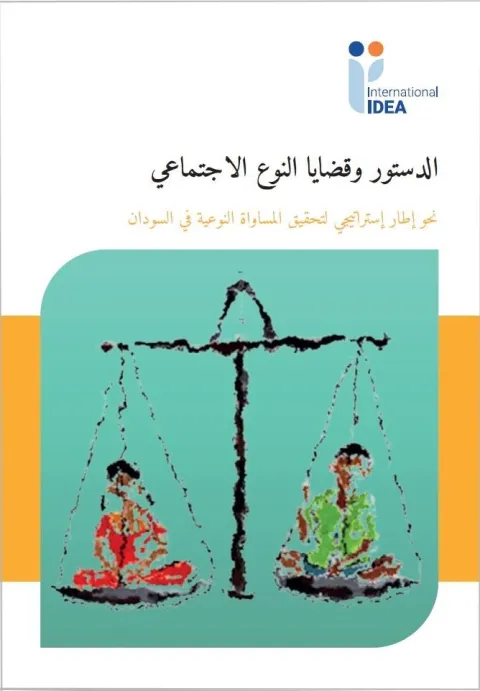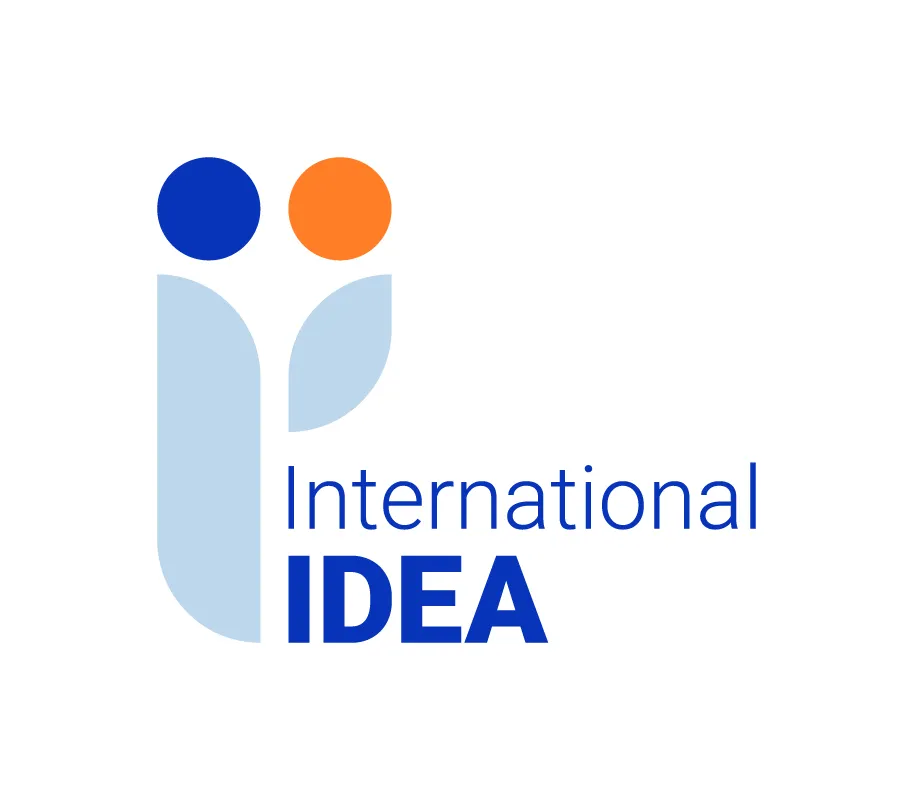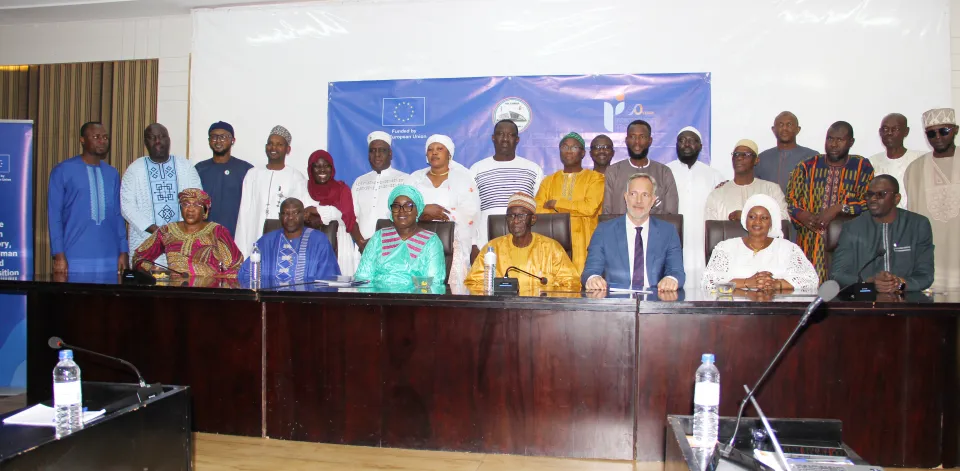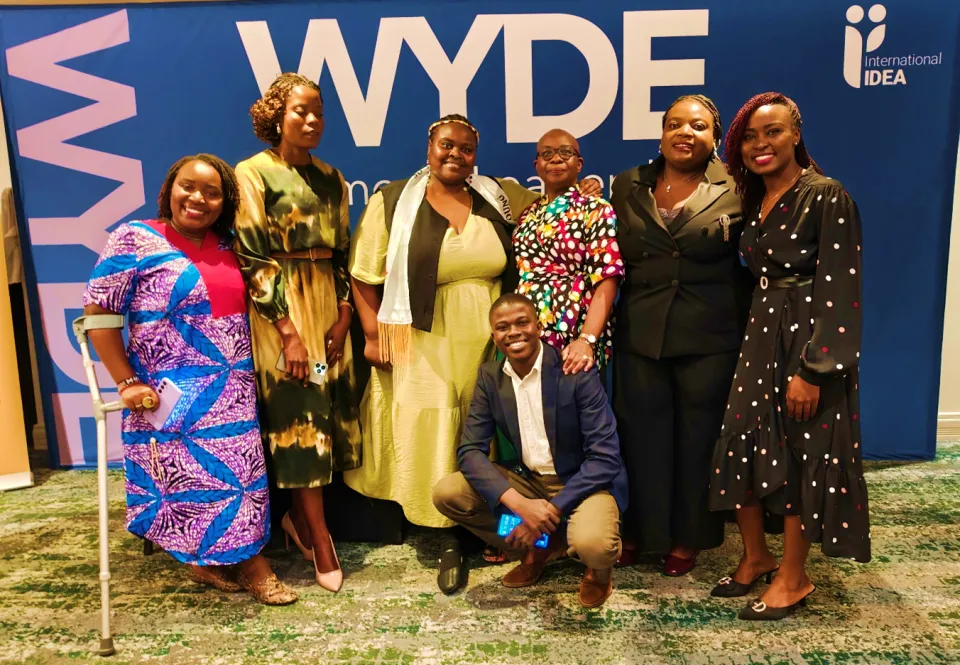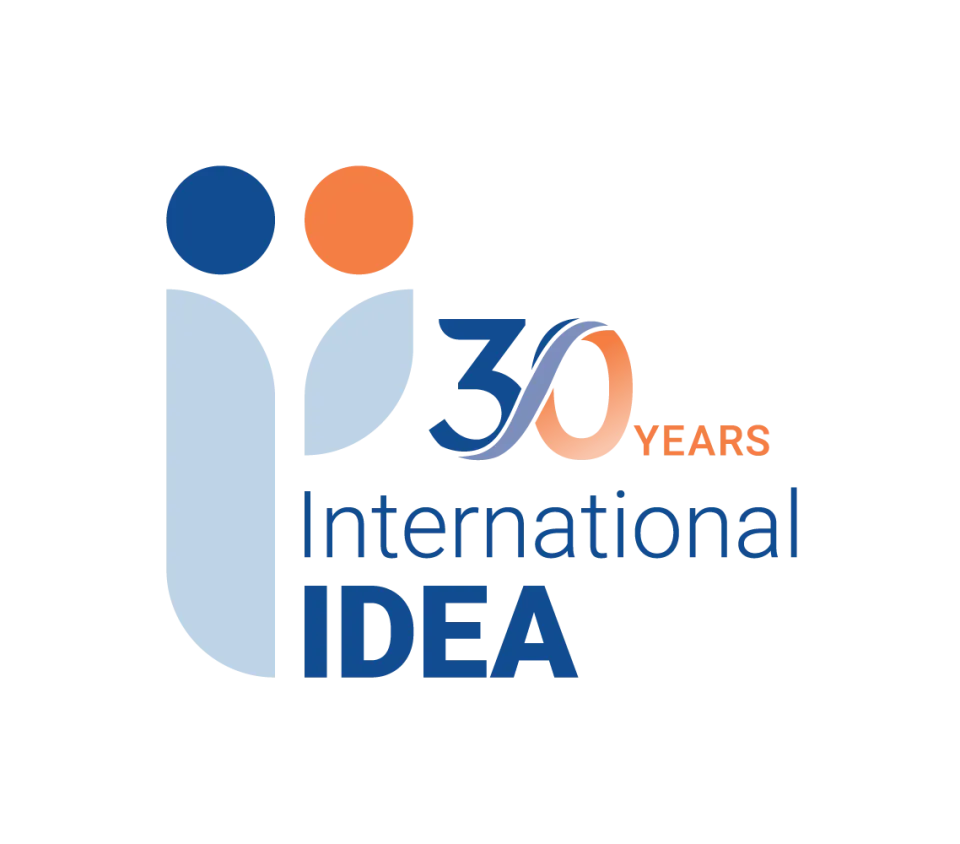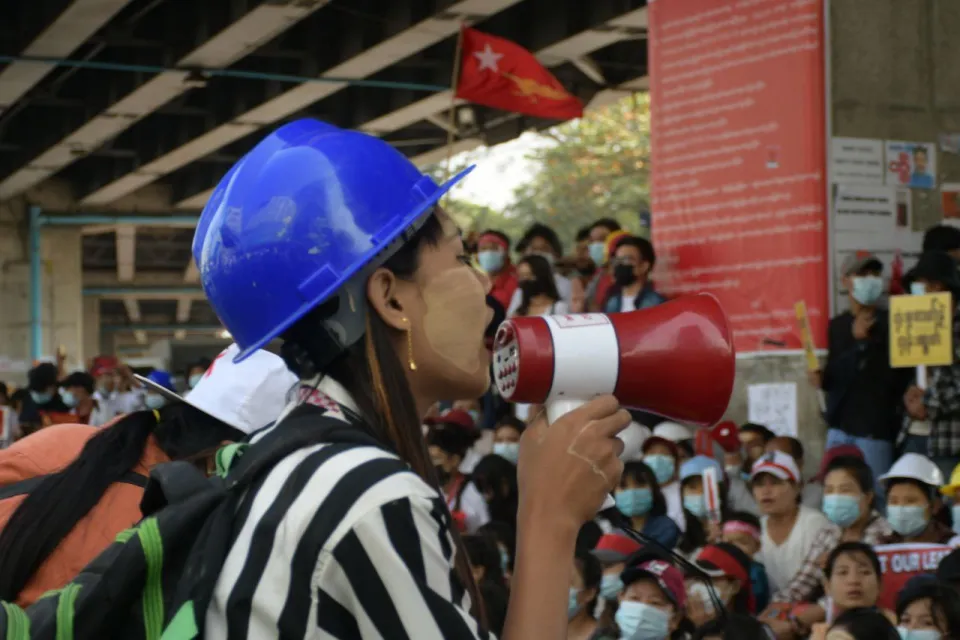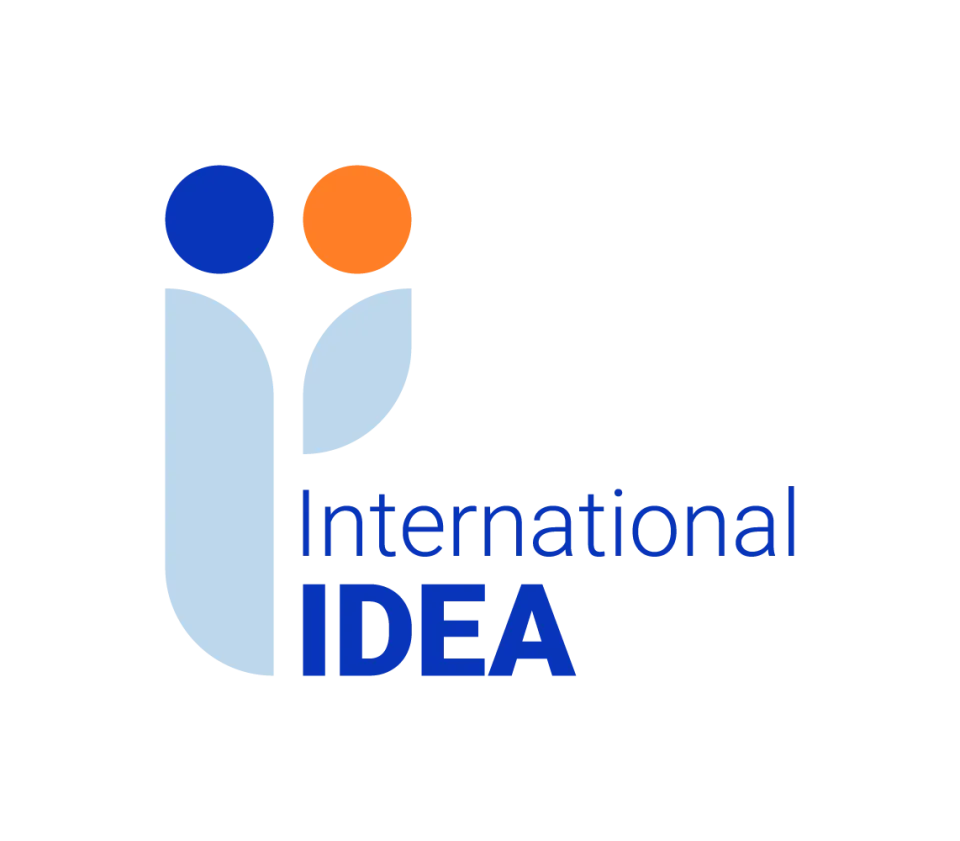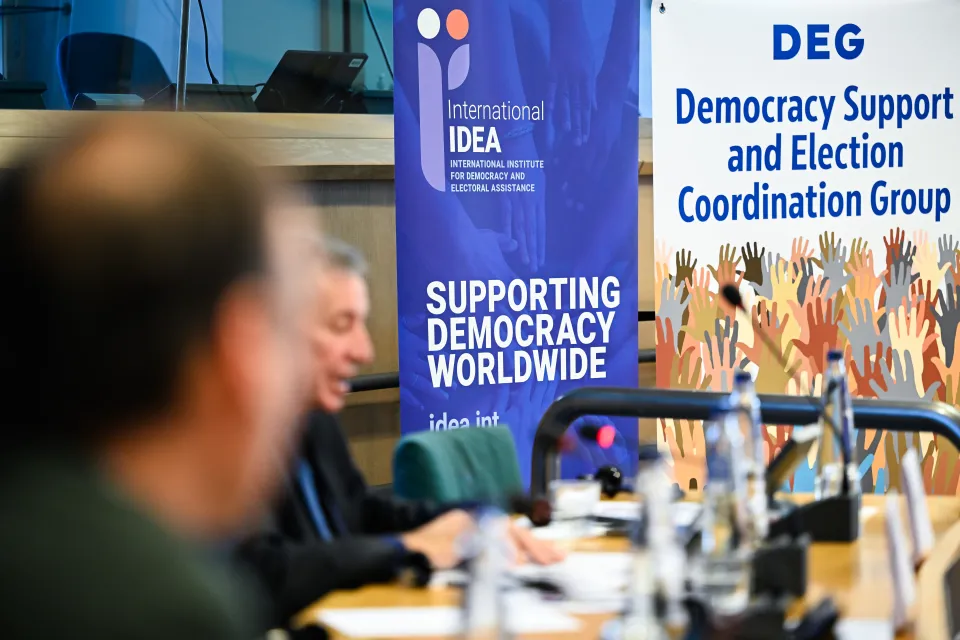Inclusion for Persons with Disabilities in Federal Democratic Myanmar
According to a 2019 survey, 12.8 per cent of Myanmar’s 54.38 million population (an estimated 5.9 million people) live with disabilities. In a survey conducted for the International Institute for Democracy and Electoral Assistance (International IDEA) in 2022 for Myanmar, PWD were identified as the most marginalized segment of the population. Since the coup, PWD are among the most adversely affected since the 2021 coup, experiencing a loss of rights and education, compromised health, and diminished livelihoods.
This Policy Brief explores inclusion strategies for persons with disabilities (PWD) in post-coup Myanmar in the light of the ongoing transitional constitutional and democratic reform process. It highlights the challenges faced by PWD before and since the 2021 coup, including those of Myanmar’s interim government institutions in supporting PWD. It analyses how inclusive Myanmar’s interim government institutions are for PWD, and what the Federal Democracy Charter (FDC) states about including PWD in consideration of the international legal framework for PWD.
An easy-to-read version is available to download: Download an easy-read version.
Details
Staff author
Contents
Easy-read version: Including people with disabilities in Myanmar
Summary
1. What are the challenges for inclusion and effective political participation for persons with disabilities in post-coup Myanmar?
2. What implications does the current international and pre-coup national legal framework for persons with disabilities have for Myanmar’s transitional constitutional process?
3. What do the principles of the federal democracy charter mean for the effective participation of persons with disabilities in the transitional constitutional process?
4. How inclusive and aware are Myanmar’s post-coup interim government institutions of the needs of persons with disabilities?
5. Strategies to enhance the inclusion of persons with disabilities in constitutional and democratic reform
References
Abbreviations
About the author
About the organizations
Give us feedback
Do you have a question or feedback about this publication? Leave us your feedback, and we’ll get back to you
Send feedbackInclusion for Persons with Disabilities in Federal Democratic Myanmar
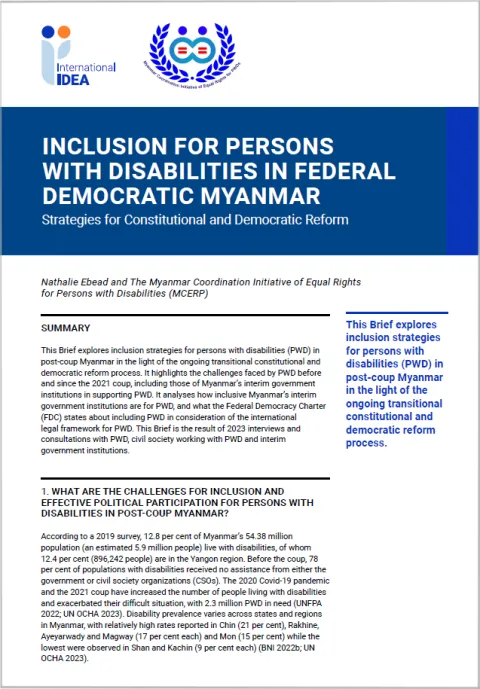
| Total views | 4290 |
|---|---|
| Downloads | 196 |
| Rating |
Staff author
Give us feedback
Do you have a question or feedback about this publication? Leave us your feedback, and we’ll get back to you
Send feedback